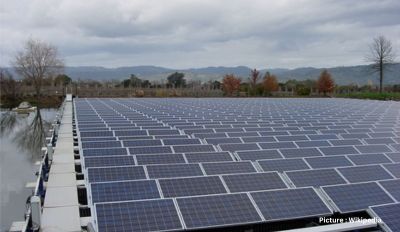Major tech companies such as Meta, Amazon, and Google have committed to a landmark pledge to support the tripling of global nuclear energy capacity by 2050, aiming to strengthen energy security and decrease reliance on fossil fuels.
In a historic move, some of the world’s largest tech companies are engaging in a collaborative effort to significantly expand nuclear energy as part of a global initiative to reduce fossil fuel dependency. This unprecedented alliance was sealed with the signing of a pledge during the CERAWeek conference in Houston. Leading tech giants like Meta, Amazon, and Google have joined forces with other industries to bolster nuclear power production, marking the largest deployment of its kind in history.
The pledge, facilitated by the World Nuclear Association (WNA), is designed to increase nuclear energy capacity to three times its current level by the year 2050. Beyond the tech sector, industries such as maritime, aviation, and oil and gas are anticipated to add their support in the coming months. This concerted effort aligns with the commitments made during the 2023 U.N. Climate Change Conference, where over 30 countries, along with prominent financial institutions like Bank of America, Goldman Sachs, and Morgan Stanley, vowed to expand nuclear capacity.
The WNA’s ‘Large Energy Consumers Pledge’ represents a breakthrough moment, as it attracts advocates from beyond the traditional nuclear sector. The initiative underscores the growing consensus among businesses, financial entities, and governments on the critical role of nuclear energy in transitioning to cleaner power sources. As a reliable provider of stable energy, nuclear power is increasingly viewed as essential for sustainable growth globally.
Currently, nuclear power accounts for just 9% of the world’s electricity, generated by 439 power reactors with a combined capacity of 371 gigawatts. As countries grapple with the volatility of fossil fuel markets and geopolitical uncertainties, expanding nuclear energy proves vital for many, providing an avenue toward energy security and reduced fossil fuel reliance.
Tech corporations like Meta, Amazon, and Google have realized that current renewable energy solutions alone cannot fully meet their extensive energy needs. The Large Energy Consumers Pledge unites these technology leaders to operationalize their commitment to long-term energy strategies. Meta’s Head of Global Energy, Urvi Parekh, articulated this motivation: “As global economies expand, the need for a reliable, clean, and resilient energy supply is paramount. Nuclear energy, with its ability to provide continuous power, can help meet this rising demand. We’re excited to join alongside this multi-organisational effort with the Tripling Nuclear Pledge to reiterate our commitment to nuclear energy.”
In addition to their commitment, Amazon and Google have initiated plans to back the development of small nuclear reactors, a technology poised to revolutionize reactor construction by reducing costs and lead times. These initiatives are part of broader strategies to position nuclear power as a central component of future energy systems capable of supporting artificial intelligence centers and other energy-intensive technologies.
This strategic shift underscores a critical pivot in the race to attain net-zero carbon emissions, positioning nuclear energy as a linchpin in the quest for a sustainable energy future. As more industries and government bodies recognize the benefits of nuclear expansion, the pledge signals a pronounced move toward solidifying nuclear energy’s role in global energy strategies.
According to Ecoportal, this collaborative effort marks a pivotal step toward establishing nuclear power as a pivotal player in the global energy landscape, ensuring enduring reliability and sustainability.
Source: Original article


